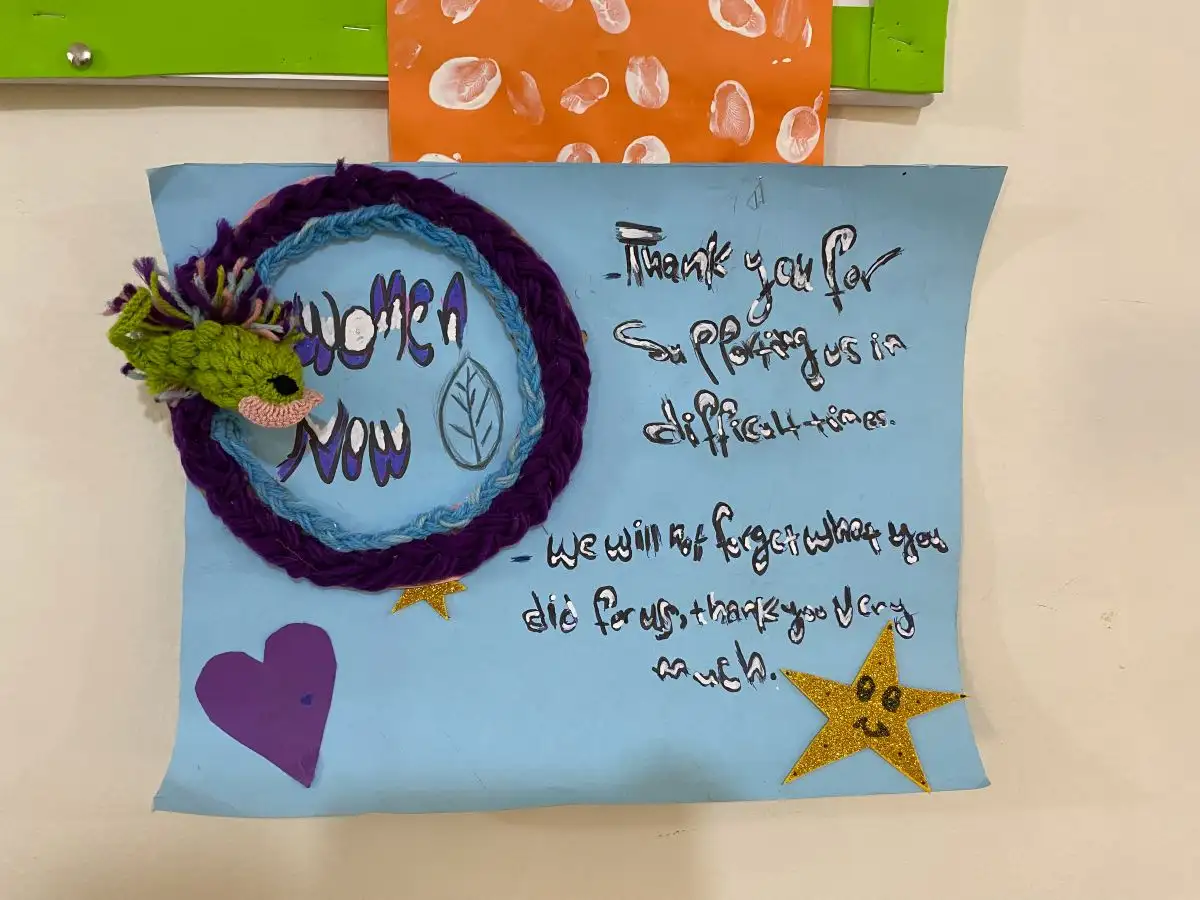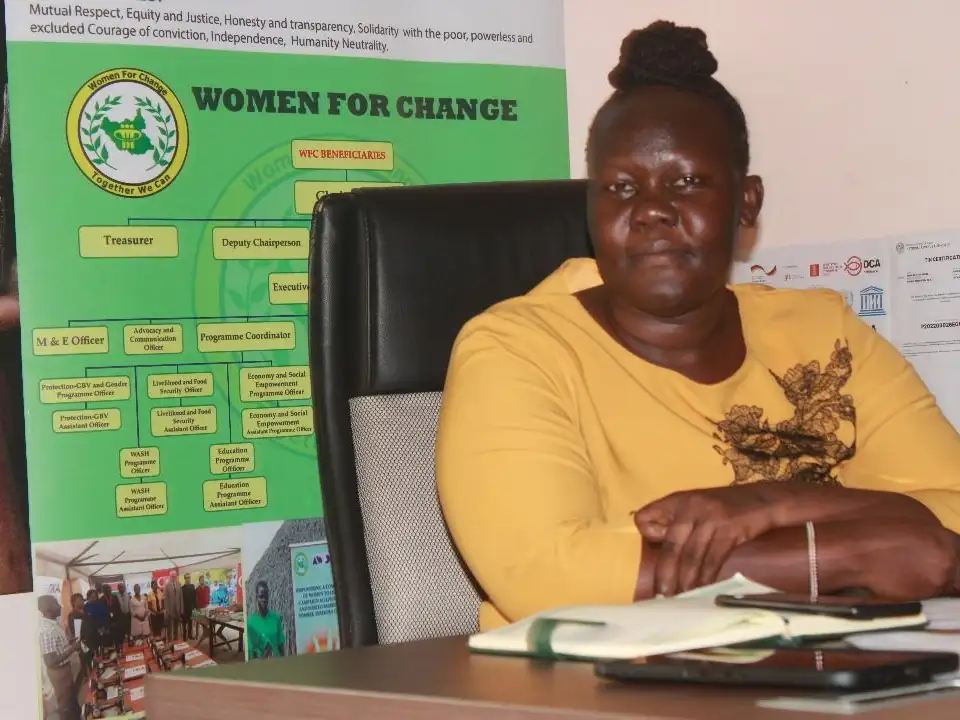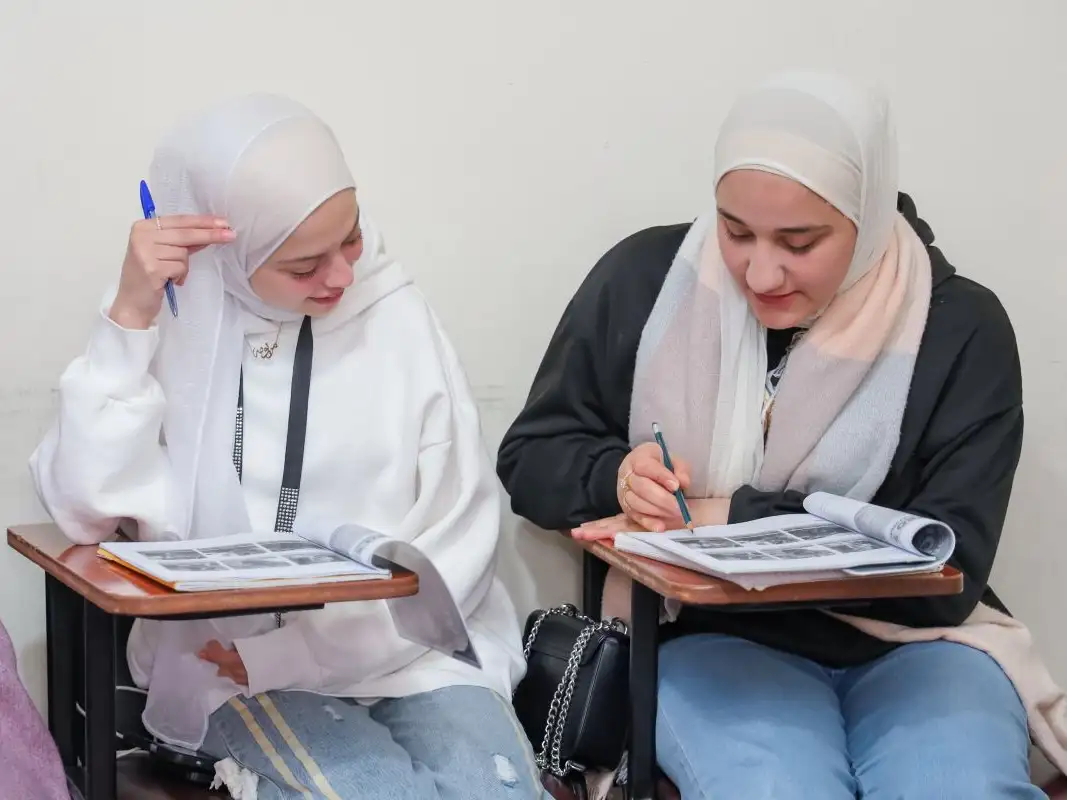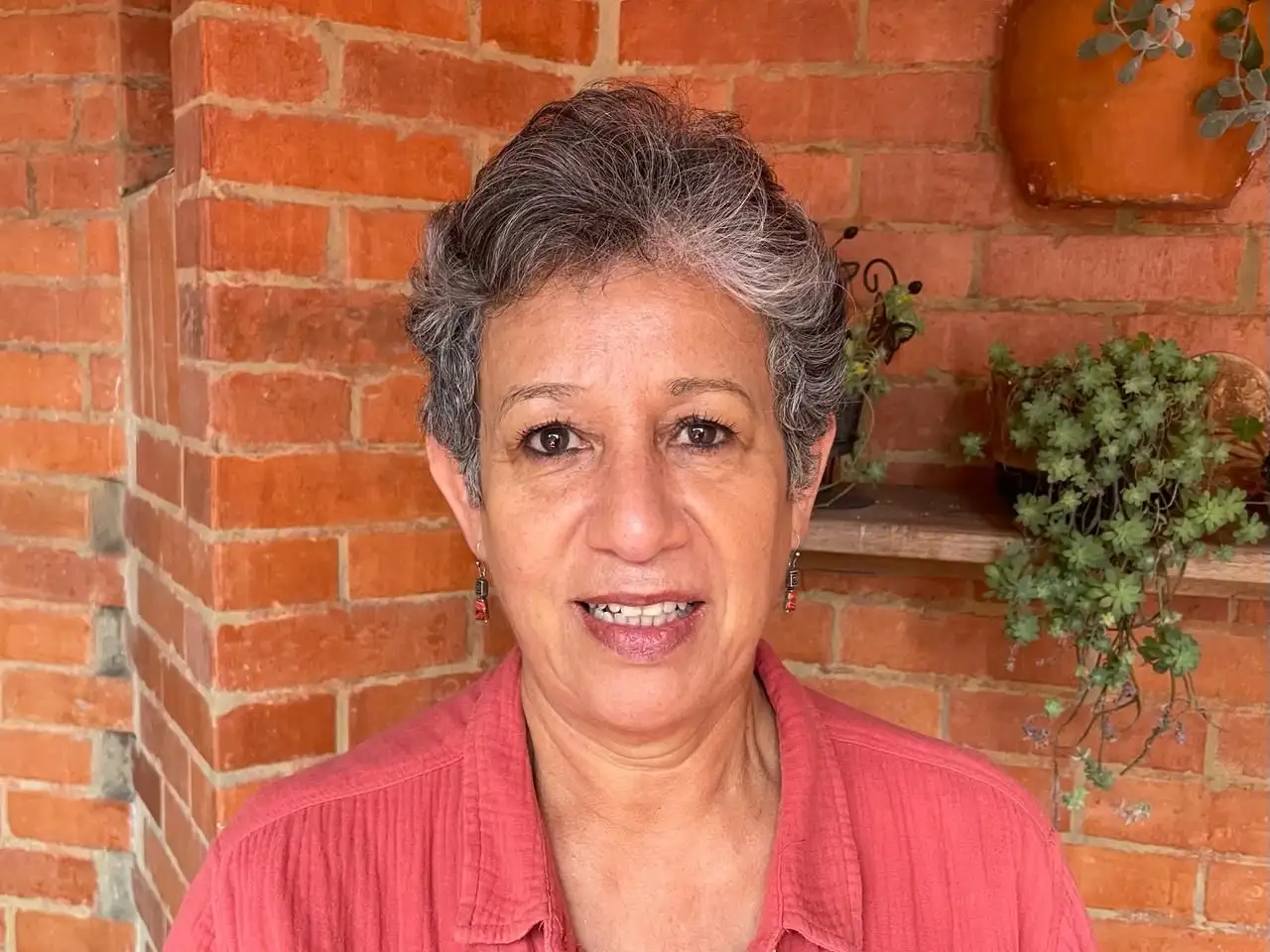

Message of thanks at a Women Now for Development centre. CAFOD has been working with local partner Women Now for Development since 2016 to protect, support and empower Syrian women affected by conflict.
2025 has been a year of unprecedented funding hits to the aid sector. The cuts from key governments and philanthropic organisations, alongside rising anti-aid sentiment and shrinking spaces to talk freely, have sent shockwaves. But did you know that women and girls are being hit the hardest?
We are seeing a general downward trend on gender equality (equal rights for women and girls) measures around the world. A recent report from Equal Measures 2030 shares that nearly 40% of countries have stagnated or even declined on gender equality between 2019 and 2022 - affecting over 1 billion women globally. The number of women and girls living in conflict affected countries is now 50% higher than the number in 2017. Yet vital funds towards women’s protection and wellbeing are diminishing at a time when they need to increase. Sadly, women-led and women’s rights organisations that offer expertise in this area are facing risk of closure.
The UN Global Campaign on 16 Days of Activism against Gender Based Violence (GBV) takes place annually from 25 November (International Day for the Elimination of Violence Against Women) to 10 December (Human Rights Day). It draws attention to the high rate of violence against women (affecting 1 in 3 women) and the work being done to address it.
A better world needs all of us. That’s why we work with local experts supporting women in bringing about justice. This year, we reached out to a selection of our local partners working on justice for women to share their insights on the current situation.
What is the impact of aid cuts?


Anna Tazita Samuel, Executive Director of Women for Change
In South Sudan, factors of armed conflict and displacement (people moved from their homes) have contributed to some of the highest levels of violence against women and girls around the world. We proudly support Women for Change, a women-led partner. Together, we work on women and children’s rights in areas including protection, economic empowerment, advocacy and peacebuilding. Women for Change's Executive Director, Anna Tazita Samuel, tells us “gender programming is no longer a priority for most donors – we really feel the impact”. This means fewer projects are running, and many small local women’s rights groups have had to shut down because they can’t cope with the sudden funding cuts.
For example, dignity kits (which include essential items like period products) are no longer available in adequate numbers. This leaves women and girls without basics such as sanitary towels. Also, humanitarian coordination structures that help to organise and communicate on services and support to women and girls affected by violence are at risk of closure beyond December due to funding cuts.


Syrian refugees living in Lebanon taking part in educational activities supported by Women Now for Development
In the Middle East, we’ve been working with a local partner Women Now for Development since 2016 to protect, support and empower Syrian women affected by conflict. This includes helping them take a more active role in their communities and workplaces by offering job training and other practical opportunities.
Our women-led partner is currently witnessing a cut in services, particularly for refugee and displaced communities. This includes psychosocial support (emotional and social support) and supporting women experiencing violence. Early marriages as well as child labour are on the rise whereas space for speaking out and strengthening women’s voice in the community has shrunk dramatically.
Reem Alhaswani, Empowerment and Leadership Programmes Manager at Women Now for Development, puts the cuts in real terms: “Last year we supported 52 women-led groups with small funds. Until today, we have been able to only get funding for eight.”


Janeth Lozano Bustos, Director of partner CODACOP
Our Colombian partner, CODACOP, works to defend and protect indigenous women’s rights and representation. This includes activities such as providing political training to women to help address longstanding patriarchal norms (male power structures) that limit their voice and representation, or even threaten their wellbeing and safety. CODACOP can see that the budget cuts are heavily affecting organisations like theirs that support and equip women.
“Deeply unequal countries like ours, where conflict remains so brutal and where patriarchal practices and systems of gender-based violence persist, require and demand the presence of solidarity from the international community, but also resources,” shares CODACOP Director Janeth Lozano Bustos.
How is CAFOD responding?
A better world needs all of us working together so women and girls can thrive all around the world. We remain committed to the achievement of justice for women and girls in the midst of these changes. Our local partners remind us that our contribution areas to their work remain relevant and vital at this time. We continue to support local women-led partners, many of whom work on women’s rights. We want to fund these groups in a flexible way so they can keep doing their important work in the community. This includes helping women speak up and be heard, preventing and responding to violence against women and girls, supporting women to earn a living, and challenging unfair and harmful attitudes about gender. We also help these groups meet others doing similar work, communicate on important issues, and take part in decision-making spaces at local, national and international levels.
In a world where gender equality gains are under threat, we remain in solidarity with our local partners to uphold the dignity of all women and girls in the fight to seek justice for all.


Eulalia, a farmer in Alta-Verapaz is growing startfruit, black pepper and guava in her back garden.
What is CAFOD doing to change gender injustice?
Our vision is a world where diverse women and girls are safe and respected, and where women and men share equally in shaping their societies.

